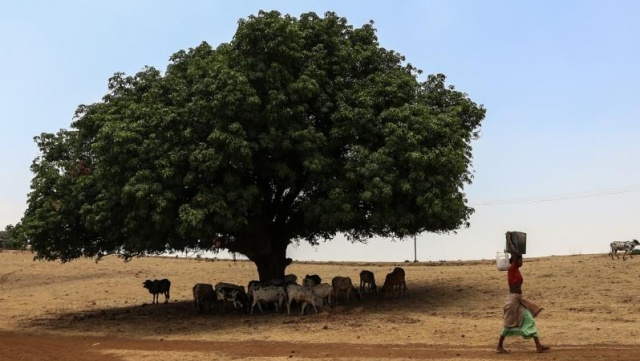Pope Francis' Encyclical Letter Laudato Sì: Reflecting One Year Later
In May 2006, former US Vice President Al Gore released the groundbreaking documentary “An Inconvenient Truth.” While climate change debate has continued ever since, while concrete solutions seem to drip slower than maple sap in March. The question remains: are we willing to deal with this inconvenient but vital truth?
One year ago tomorrow, Pope Francis called humanity to a virtue that scarcely appeared in the environmental discourse of our era:
hope. His landmark encyclical
Laudato Sì on Care for our Common Home was a striking reminder that we can do something, we should do something, and we must do something. “Humanity still has the ability to work together in building our common home,” the Pope states (no. 13). “Hope would have us recognize that there is always a way out, that we can always redirect our steps, that we can always do something to solve our problems… Still,” the Pope admits, “we can see signs that things are now reaching a breaking point” (no. 61).
What are Francis’ proposals faced with such a breaking point? His first recommendation is “a new dialogue about how we are shaping the future of our planet. We need a conversation which includes everyone, since the environmental challenge we are undergoing, and its human roots, concern and affect us all” (no. 14). Science, religion, indigenous peoples, and the international community – every stratus of the human family has a role to play in this universal exchange with universal consequences.
But genuine change cannot be driven only at a societal level. The effectiveness of laws and regulations is limited, even when properly enforced. What is needed instead is a “selfless ecological commitment” on the part of the individual women and men of our time. Using less heating and wearing warmer clothing, the avoidance of disposable products, the reduction of water usage, recycling, purchasing and preparing a reasonable amount of food, turning off lights: “We must not think that these efforts are not going to change the world. They benefit society, often unbeknown to us, for they call forth a goodness which, albeit unseen, inevitably tends to spread” (no. 212).
For Pope Francis, caring for our environment also entails caring for one another. How could we care for the family home without caring for our brothers and sisters, and vice versa? “We are always capable of going out of ourselves towards the other.” We must concern ourselves with “caring for things for the sake of others,” restraining our consumption “to avoid the suffering of others or the deterioration of our surroundings.” Spurning self-centeredness and self-absorption in favour of “disinterested concern for others… [is] essential if we truly wish to care for our brothers and sisters and for the natural environment” (208).
What is the inconvenient truth? Things are not as they should be and something must be done. The question remains: what are we going to do about it? The truth is, there is still hope that we can.
